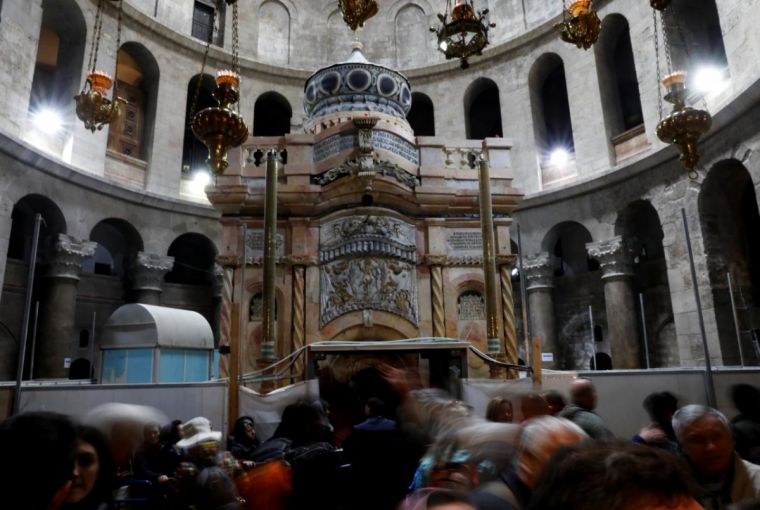Jerusalem churches fear Israel is using 'discriminatory' bill to seize their land

The Israeli government has called off a debate on legislation that Jerusalem churches claim would have harmed their land ownership.
Israeli President Reuven Rivlin and Prime Minister Benjamin Netanyahu intervened on Saturday to stop a vote on the 'Tenants' Rights Law' that had been due to take place on Sunday.
The bill was introduced to nationalise properties used for housing that were sold by the church to private developers. The Israeli government claims that the purpose of the bill is to protect tenants, churches and investors but the church leaders fear that it is a ruse to confiscate their property.
They said the bill would restrict the ability of churches to deal with their own property and earn income that is used to fund church and humanitarian work.
Concern over the bill extends beyond Jerusalem. In the US, last month a bipartisan group of lawmakers wrote to Secretary of State Mike Pompeo warning that the bill 'threatens the stability of the historic Christian presence in Jerusalem'.
In the UK, the Archbishop of Canterbury, the Most Rev Justin Welby, spoke to ITV about the legislation in an interview on Friday during which he urged Mr Netanyahu to uphold religious freedom.
'The proposed law would have a very serious effect on the Christian churches in Jerusalem, the very place we are looking to at this time of year,' he said.
'There are issues in the bill that need to be looked at but this is not the right moment.'
He added: 'I admire Prime Minister Netanyahu reflecting Israel's reputation for freedom of religion and belief and the rule of law. I hope he will continue to do so.'
The churches were also strongly critical of the timing of the debate days before Christmas. In a joint statement, the Greek Orthodox Patriarchate of Jerusalem, Latin Patriarchate of Jerusalem, Custody of the Holy Land, and Armenian Patriarchate of Jerusaleman called it an 'intentional act of grave insensitivity'.
'At a time when more than a billion Christians commit themselves to faith, hope and reconciliation and prepare to welcome Christ as the Prince of Peace, it is hard to explain such a stark and cynical action,' they said.
The church leaders said they feared that although the bill has been withdrawn for now, attempts will continue to push it through the Knesset.
'While thankful for this reprieve, we are deeply concerned that attempts to bring this legislation forward will continue,' they said.
'We shall therefore remain actively seized of the matter, refusing to compromise on our basic rights and convinced that this Bill has no place in the corpus of legislation of the State of Israel.
'We reiterate our readiness for dialogue, yet at the same time we stand united and resolute in our rejection to unilateral actions that undermine our very existence in this Holy Land.'
His Beatitude Theophilos III, Patriarch of Jerusalem said: 'The Church Leaders of Jerusalem welcome the withdrawal of this offensive and discriminatory bill that selectively harms Christians. I call upon Prime Minister Netanyahu to continue to honour his explicit promise to preserve the long-standing status quo between the Church and the State and promote religious freedom in Israel.'











